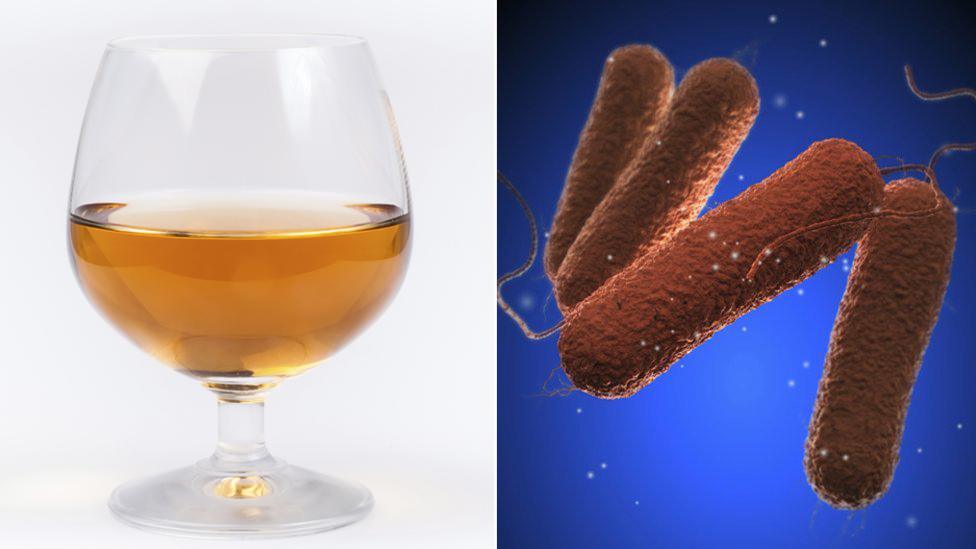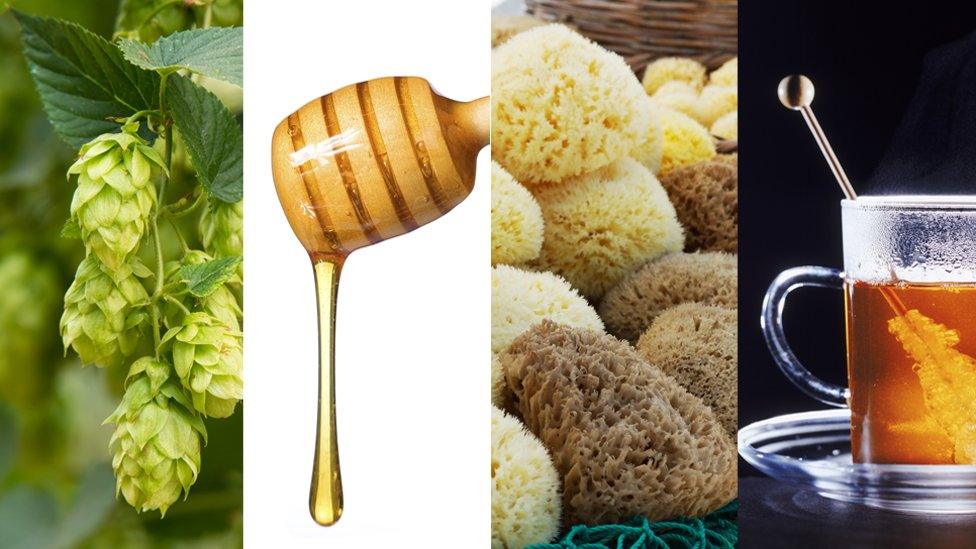Welsh 'super mead' could prevent food poisoning
- Published

Scientists are working on a Welsh "super mead" which could protect drinkers from the scourge of food poisoning at the late-night takeaway.
Cardiff University's School of Pharmacy and Pharmaceuticals plans to add medicinal salmonella-killing herbs to the fermented honey drink.
The tipple is based on a 16th century Welsh drink called metheglin.
"You can see this would sell very well to students," Prof Les Baillie said.
"Perhaps you could protect them from the kebab and the morning after."
Dr James Blaxland, who has led the work, tested more than 50 different plants extracts and hops against a range of bacteria, including salmonella.
It is one of the germs that trigger more than 500,000 cases in the UK each year, external.

The dangers of undercooked burgers and kebabs could be thwarted by the 'super mead' being developed by Cardiff Uni
"It causes very serious food poisoning and stomach upset, which people might experience on a Sunday morning," Dr Blaxland said.
"The idea is that we can produce a mead with high levels of the compounds which are active against salmonella, and, if people drink enough of our mead on a Saturday night, they might not get ill."
Cardiff University's team said the idea was sparked by Scandinavian scientists who are trying to develop mead which could help in the battle against antibiotic resistance, external.
Adding medicinal herbs to mead dates back at least four centuries, when Welsh brewers created a drink then called metheglin or meddyglyn.

Dr James Blaxland says the metheglin drink could tackle salmonella
"We still have to do a lot of work on this, and a lot more sampling has to be done before we come up with the finished drink," he said.
In addition to developing the mead, researchers are also investigating the of possibility using hops-based compounds to prevent other human illnesses.
They are also hoping to use hops commonly only utilised in beer to tackle the problem of bovine tuberculosis and even to eliminate methane produced by cows and cut global warming.
- Published6 May 2016
